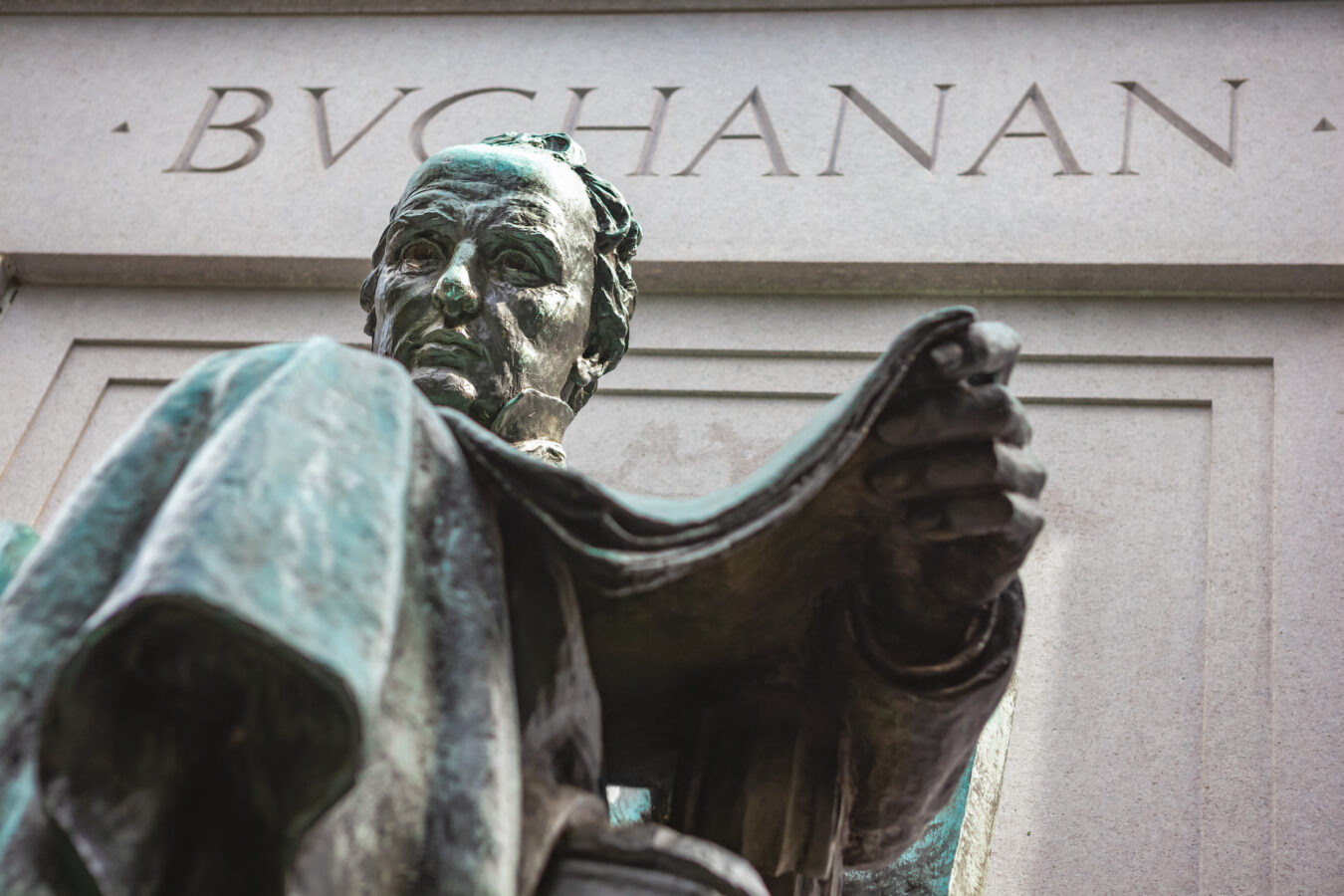Presidential legacies are often defined by moments of triumph and adversity, but some leaders find themselves etched into history for all the wrong reasons. From mishandling divisive debates to presiding over scandals and economic crises, these leaders left indelible marks on the nation, shaping its course in ways both profound and regrettable.
Millard Fillmore

Millard Fillmore, the 13th president of the United States, is often viewed as a figure who mishandled the nation’s divisive slavery debates during his tenure from 1850 to 1853. His legacy is largely defined by his support for the Compromise of 1850, a series of legislative measures intended to appease both the North and the South over the issue of slavery expansion.
While the Compromise of 1850 temporarily eased tensions, it did so at a significant cost, particularly with the passage of the Fugitive Slave Act. This act, which mandated the return of escaped slaves to their owners, further inflamed the growing animosity between the North and the South, ultimately contributing to the outbreak of the Civil War just over a decade later.
Warren G. Harding

Warren G. Harding’s presidency, spanning from 1921 to 1923, was marred by a series of scandals and questionable leadership decisions that left a tarnished legacy. One of the most notorious scandals was the Teapot Dome affair, which involved the illegal leasing of oil reserves in California and Wyoming to private companies at below-market rates in exchange for bribes.
Harding’s administration was plagued by cronyism, with the president appointing close friends and family members, known as the “Ohio Gang,” to key positions. This nepotism led to widespread corruption and a lack of accountability within the government, further undermining public trust in Harding’s leadership.
George W. Bush

George W. Bush’s two-term presidency from 2001 to 2009 was marked by a series of controversial decisions and shortcomings that cemented his reputation as a failed leader. The 2003 invasion of Iraq, undertaken under the pretense of weapons of mass destruction that never materialized, resulted in hundreds of thousands of Iraqi and American casualties and destabilized the entire region. Bush’s foreign policy, characterized by unilateralism and disregard for international consensus, further alienated the United States from its allies.
Domestically, Bush’s administration’s handling of the economy proved equally disastrous. Deregulation of the financial industry, coupled with lax oversight, paved the way for the 2008 financial crisis, a severe economic downturn that plunged the nation into recession and left millions unemployed. The crisis exposed deep flaws in Bush’s economic policies and further eroded public trust in his leadership.
Furthermore, Bush’s presidency witnessed a deepening political polarization that divided the country along ideological lines. His divisive rhetoric and partisan approach to governance exacerbated the rift between Democrats and Republicans, creating a climate of distrust and hostility that continues to plague American politics.
Franklin Pierce

Franklin Pierce, the 14th president of the United States, is often ranked among the worst presidents in American history due to his unwavering support for the Kansas-Nebraska Act of 1854. This act, which effectively repealed the Missouri Compromise, allowed the residents of newly acquired territories to determine the issue of slavery through popular sovereignty. This decision proved disastrous, as it inflamed tensions between pro-slavery and anti-slavery factions, sparking violent clashes in Kansas territory known as “Bleeding Kansas.”
Pierce’s presidency marked a dark period in American history, characterized by escalating sectional tensions, political turmoil, and international setbacks. His unwavering support for the Kansas-Nebraska Act stands as a reminder of the dangers of appeasing extremism and the importance of strong leadership in addressing divisive issues.
John Tyler

John Tyler, the 10th president of the United States, presided over one of the most tumultuous periods in American history during his tenure from 1841 to 1845. A former Democrat, Tyler alienated both parties with his staunch support for states’ rights and his handling of the divisive issue of slavery. His ardent pursuit of Texas annexation as a slave state further exacerbated sectional tensions between the North and the South, deepening the rift that would eventually lead to Civil War.
Tyler’s presidency was also marked by his unprecedented clash with Congress. In a break from tradition, Tyler repeatedly used his veto power to block legislation passed by Congress, earning him the ire of both Democrats and Whigs. This conflict culminated in 1843 when the House of Representatives impeached Tyler for “high crimes and misdemeanors,” making him the first president to face such a charge. While Tyler was ultimately acquitted by the Senate, the impeachment proceedings further damaged his reputation and left him politically isolated.
Herbert Hoover

Herbert Hoover’s presidency, spanning from 1929 to 1933, unfortunately coincided with the onset of the Great Depression, a period of unprecedented economic hardship that devastated the lives of millions of Americans. Hoover’s adherence to laissez-faire economic principles, believing that the economy would self-correct without government intervention, proved disastrous.
His policies, including the Smoot-Hawley Tariff Act, which imposed steep tariffs on imported goods, further exacerbated the Depression’s impact, stifling international trade and deepening the economic crisis. Hoover’s failure to recognize the severity of the situation and take decisive action led to widespread suffering and prolonged economic stagnation.
James Buchanan

James Buchanan, the 15th president of the United States, served a tumultuous term from 1857 to 1861, marked by a series of administrative blunders and escalating sectional tensions. His presidency was characterized by poor leadership, economic woes, and a toxic approach to slavery that ultimately plunged the nation into civil war.
Buchanan’s failure to provide effective leadership during the secessionist crisis proved to be a fatal flaw. His indecisiveness and lack of urgency allowed the situation to spiral out of control, culminating in the outbreak of war. His controversial support for the Kansas-Nebraska Act of 1854, which inflamed tensions over slavery in the territories, further solidified his reputation as one of the nation’s worst presidents.
Ulysses S. Grant

Ulysses S. Grant presided over an administration marred by corruption and scandal from 1869 to 1877. His handling of the post-Civil War reconstruction was deemed inadequate, with his term overshadowed by various scandals, including the manipulation of contracts for the construction of the first Transcontinental Railroad in the notorious Credit Mobilier affair. The exposure of tax evasion and bribery in the Whiskey Ring scandal among whiskey distillers and members of Grant’s government further tarnished his presidency. Moreover, the “Black Friday” crisis of 1869, where influential financiers manipulated the gold market, marked the onset of financial difficulties during Grant’s tenure.
Andrew Johnson

Andrew Johnson, the 17th president of the United States, ascended to power following the assassination of Abraham Lincoln in 1865. While he made some notable contributions, his presidency was ultimately marred by his impeachment in 1868, casting a shadow over his legacy. Johnson’s tenure was marked by a concerted effort to heal the wounds of the Civil War and reintegrate the Southern states back into the Union. He advocated for the rights of newly freed slaves and oversaw the purchase of Alaska from Russia, a strategic move that expanded the nation’s territory.
Despite these accomplishments, Johnson’s presidency was derailed by his tumultuous relationship with Congress, particularly the Radical Republicans. His attempts to assert his authority over Reconstruction efforts and his dismissal of Secretary of War Edwin M. Stanton without Senate approval led to his impeachment by the House of Representatives in 1868.
Richard Nixon

Richard Nixon became the first American president to resign from office, his downfall precipitated by a series of scandals that tarnished his second term. The Watergate scandal, centered on the unauthorized break-in at the Democratic National Committee headquarters by operatives connected to Nixon’s re-election campaign, triggered a chain of events that exposed the administration’s blatant disregard for the law. Nixon’s attempts to obstruct the investigation and cover up his involvement further eroded public trust and ultimately led to his resignation in 1974.
Stars, Stripes, and Food Fights: 10 American Foods the World Has BANNED, Leaving Taste Buds in TEARS!

The world of food is full of intriguing flavors and diverse culinary traditions. However, some American foods have faced the disapproving gaze of international standards and are banned in various corners of the globe. Here is a list of American foods that are banned in other countries.
Stars, Stripes, and Food Fights: 10 American Foods the World Has BANNED, Leaving Taste Buds in TEARS!
10 Things Americans Should Avoid Doing When Traveling to Europe

For a delightful European adventure, American travelers should be mindful to avoid the following aspects. These precautions are key to ensuring a wonderful vacation experience.
10 Things Americans Should Avoid Doing When Traveling to Europe
14 Harsh Truths About Christianity That No One Is Ready To Hear Yet

Christianity has a long and complex history and many different ways to understand and practice it exist. As with any religion, some aspects of Christianity can be challenging. Here are harsh truths about Christianity that some people may not be ready to hear.
14 Harsh Truths About Christianity That No One Is Ready To Hear Yet
18 Peculiar American Norms That Baffle the Rest of the World

America has many quirks, as we see from this list of things that America does that others find strange.
18 Peculiar American Norms That Baffle the Rest of the World
Unforeseen Political Controversies Sparked by 16 American Decisions

We look at 16 of the most controversial things Americans have done that created a huge debate.
Unforeseen Political Controversies Sparked by 16 American Decisions
